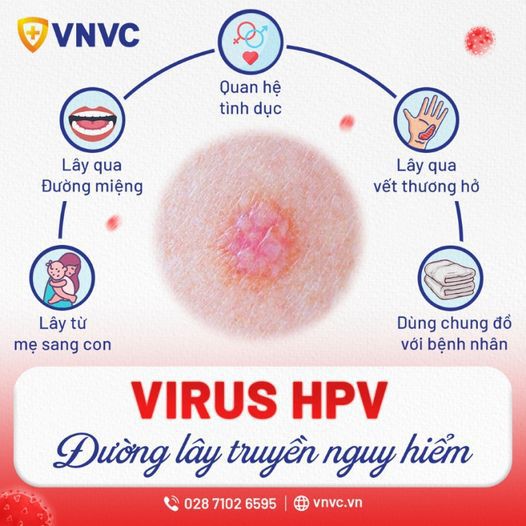🎯 CONTRACTING HPV-RELATED CANCERS THROUGH UNEXPECTED DAILY HABITS!
⚠️ The HPV virus is primarily transmitted through sexual contact, including when in contact with the genital area or engaging in oral sex, sharing towels, or washing underwear, it can lead to HPV infection. Condoms do not guarantee 100% protection against HPV… Here are some lesser-known ways the HPV virus can be transmitted:
1️⃣ Direct skin-to-skin contact during sexual activity can lead to HPV infection. The virus is commonly found on fingers, hands, mouth, and the genital area, meaning it can spread through any sexual activity, including touching.
2️⃣ Transmitting HPV from mother to child: Babies can acquire the HPV virus through their mother’s vaginal delivery, leading to conditions such as throat warts and multiple respiratory papillomatosis.
3️⃣ Sharing personal items (towels, underwear, medical equipment) with an HPV-infected person: Some studies show that the HPV virus can survive for several days on surfaces such as clothing, gynecological equipment, making it easy to contract the virus when sharing personal items.
✅ VNVC offers two types of HPV vaccines: quadrivalent and nonavalent. The quadrivalent vaccine, Gardasil, protects against 4 HPV strains (6, 11, 16, 18) and is over 90% effective in preventing long-term sexual transmission of HPV, protecting against cervical cancer, vaginal cancer, vulvar cancer, precancerous cervical lesions, and genital warts. Meanwhile, the nonavalent vaccine, Gardasil 9, protects against 9 high-risk HPV strains (6, 11, 16, 18, 31, 33, 45, 52, and 58) with up to 94% effectiveness. Gardasil 9 is especially recommended for expanded vaccination in males, the LGBT community, and individuals without sexual orientation restrictions, preventing genital warts and cancers in both males and females.
💉 Contact our hotline at 028 7102 6595 for consultation and vaccine scheduling.








